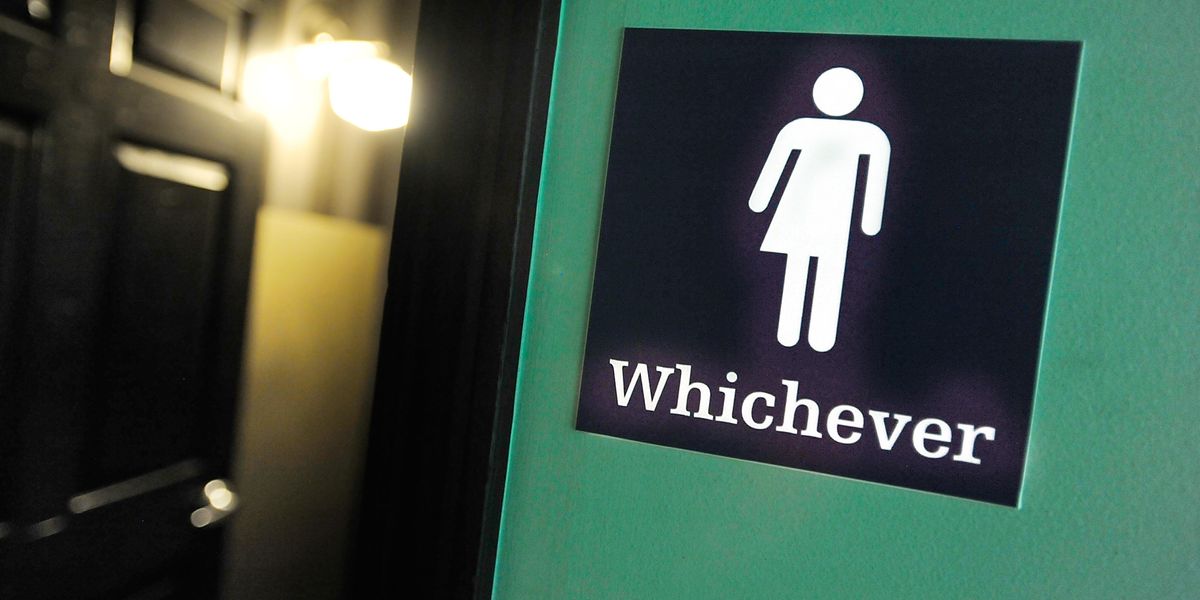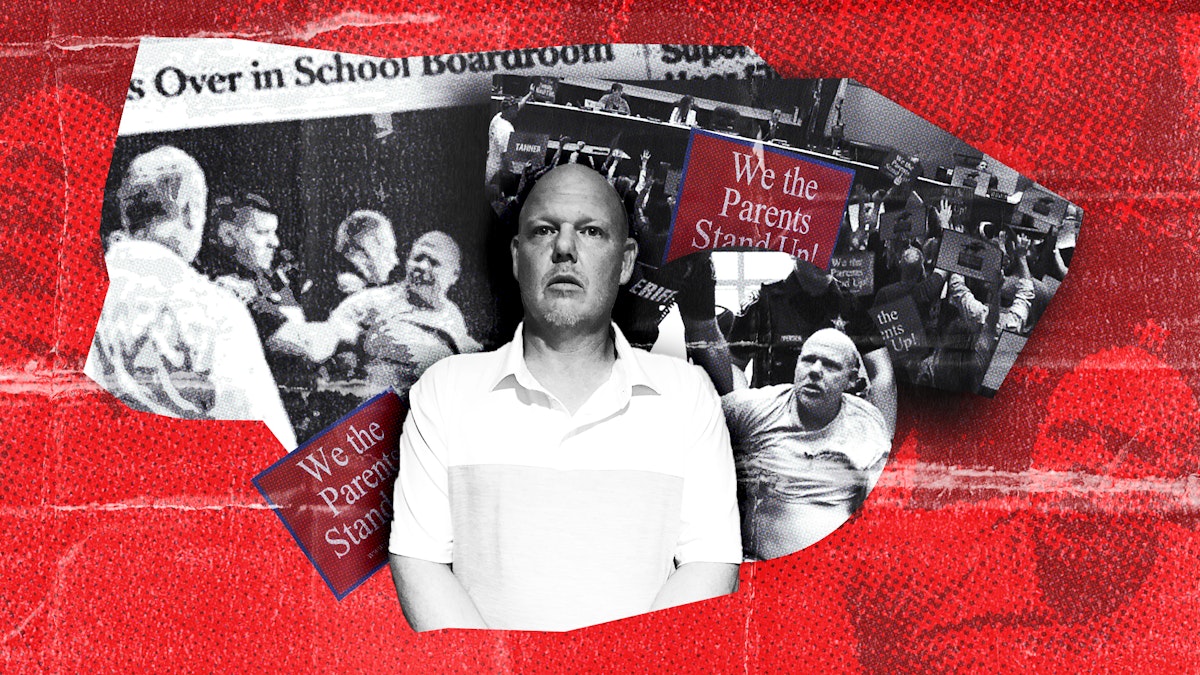Whats occurring in that tweet is a pretty common example of what a lot of my older work colleagues would refer to as “Talk shit, get hit”. He’s not <Insert Pundit> on a stage giving a prepared speech, he's a belligerent jackass who - allegedly - threatened one person, appears to have left the premises, come back and visited violence upon someone else who for all I see in the video was trying to get him to calm down; only then did someone strike him. And I base this conjecture on nothing, but given the age of the bloke he pushed, its entirely possible the lad that lamped him one was his son or grandson. Lord knows if someone pushed my grandfather like that I'd knock them the fuck out.Oh are we back to punch people you disagree with again?
I figured the appropriate response to a jackass was to deal with words using word.
I will however say if the white haired guy the moron pushed had been the one punching him I'd happily have said it was a fair return though.
Funny events in anti-woke world
- Thread starter Agema
- Start date
Don't give me that 'oh, I thought you progressives were all about peaceful resolution' shit - the guy violently pushed over an elderly man AFTER the people present tried to deal with this jackass with their words.Oh are we back to punch people you disagree with again?
I figured the appropriate response to a jackass was to deal with words using word.
Don't be dense please.
Unless the person who went for the run up punch was related to the dude it just seems like a disproportionate response when there were enough people there who could have pushed him out of the place.Don't give me that 'oh, I thought you progressives were all about peaceful resolution' shit - the guy violently pushed over an elderly man AFTER the people present tried to deal with this jackass with their words.
Don't be dense please.
Actually a reasonable example to a certain extent. DOMA primarily prevented states from having to acknowledge the laws of other states, which fits the pattern perfectly. It went a step further in setting a definition for the federal government, but it was also a bipartisan bill.Uh huh. Then explain DOMA.
Like, my state government literally overrode local participants in getting a federal heritage site and stopping low income housing rules that a local city desperately needs because it's literally pricing out the work force
Exceptions that prove the rule. There is a reason these recent events are newsworthy, but Chicago setting all the rules for rural Illinois is not newsworthy. Red states traditionally let blue cities basically do what they want. Blue states typically don't do that with red areas. Blue states pass statewide ordinances, like (scrolls through recent laws passed in California) requiring department stores that sells toys to have a specified gender neutral section. (Is this the right thread to make fun of that, or should that be in the woke world thread?)Except this is blatantly false as proven by Republican-controlled state governments routinely legislating against the home rule of larger municipalities that pursue non-GOP-approved policies. Republicans only believe in delegating power to the most local level that they control.
Like, preference for small levels of government is not an all encompassing rule, it is a single priority among many, so there are situations where "legislate as locally as possible" gets violated in favor of a different priority. That being said, anytime someone criticizes "the party of small government" for making a government entity bigger, they're misunderstanding the meaning of the phrase.
So your response to Republicans proving they don't believe in local government is just to claim that it doesn't count because Republicans do believe in local government so any actions they take contrary don't count.Exceptions that prove the rule. There is a reason these recent events are newsworthy, but Chicago setting all the rules for rural Illinois is not newsworthy. Red states traditionally let blue cities basically do what they want. Blue states typically don't do that with red areas. Blue states pass statewide ordinances, like (scrolls through recent laws passed in California) requiring department stores that sells toys to have a specified gender neutral section. (Is this the right thread to make fun of that, or should that be in the woke world thread?)
Like, preference for small levels of government is not an all encompassing rule, it is a single priority among many, so there are situations where "legislate as locally as possible" gets violated in favor of a different priority. That being said, anytime someone criticizes "the party of small government" for making a government entity bigger, they're misunderstanding the meaning of the phrase.
Circular reasoning is certainly one way to refuse to re-examine your false underlying premise. I guess I shouldn't have expected any better from you though.
Secretaries of states basically hold power over election processes, to put this in perspective...
If listening closely, you can hear him claim the secretary of state positions have already been compromised years ago (2004?) by George Soros, so straight in with the same old toxic antisemitic conspiracy theories (which are weirdly the backbone to so many conspiracy theories) to justify their own (apparently somehow legal) attempts at thwarting elections.
If listening closely, you can hear him claim the secretary of state positions have already been compromised years ago (2004?) by George Soros, so straight in with the same old toxic antisemitic conspiracy theories (which are weirdly the backbone to so many conspiracy theories) to justify their own (apparently somehow legal) attempts at thwarting elections.
Last edited:
No such thing.Exceptions that prove the rule.
Not at all. I'm saying if they didn't believe in local governance at all, those stories would not be exceptional or noteworthy.So your response to Republicans proving they don't believe in local government is just to claim that it doesn't count because Republicans do believe in local government so any actions they take contrary don't count.
That's not what that saying fucking means. It's not a cover for hypocrisy. "Exceptions that prove the rules" mean that a "No parking 9am-5pm Mon-Fri" sign proves the rule "parking allowed any time other than that"Exceptions that prove the rule.
Yes. As can clearly be seen, Republicans adore local governance as long as they control it, and will make up absolutely batshit insane conspiracies to bully political opponents out of officeNot at all. I'm saying if they didn't believe in local governance at all, those stories would not be exceptional or noteworthy.
EDIT: "But they believe in local governance when they're in charge" is the hypocritical part
Last edited:
Are schools the place for free speech?No that would be true freedom of speech in schools unless you only want speech for some people not all, just for those you like not those you dislike.
Is telling students to stop talking in class a violation of their right to free speech? Is asking teachers to teach a curriculum a violation of their right to free speech? Is expecting teachers not to make sexual comments about their students a violation of their right to free speech?
Schools are an environment with a specific purpose. It is not a "free" environment. It is highly regulated and controlled, and for good reasons. The people who go to school are children, they are not yet mentally developed. The purpose of school is ideally to support their mental development, so that they can become adults who can integrate into society. As someone on the radical left, there are many criticisms I could make of the school system and the curriculum it teaches. I could point to the fact that said curriculum is less about encouraging independent thought and more about enforcing social control, I could point to the "hidden curriculum" and the way schools are used to prepare children for the exploitation they will experience under capitalism. However, none of this is to say that school should be a place for people to impose whatever weird views and ideas they want onto children without oversight, even as an anarchist that sounds like an absolutely horrible idea.
Personally, I would argue that schools are academic institutions, and should impart academic ideals. Those ideals do not include free speech (at least not the warped definition of free speech American conservatives have adopted). Free speech, in an academic context, is something you earn. You earn it by being complete, accurate and by demonstrating your reasoning. I think an ideal education system would start preparing children for that reality almost from the point they can talk.
Looks like conservative media finally found their trans bogyman.

 4w.pub
4w.pub

 www.theblaze.com
www.theblaze.com

 www.foxnews.com
www.foxnews.com
And this is precisely why I will never serve on any school board no matter how much they paid me. (they don't) Angry parents shouting about communism, CRT, and trans-issues isn't fun.

"Skirt Wearing" Male Student Found Guilty in Loudoun County School Bathroom Rape
The male student at the centre of a bombshell case out of Loudoun County, Virginia has been found guilty of a May sexual assault on a female student in Stone Bridge High's girl's restroom. The Loudoun County School Board came to international attention earlier this month when a father revealed
 4w.pub
4w.pub

Skirt-wearing male student accused of brutal bathroom sex assault was previously placed under electronic surveillance for similar attack: Report | Blaze Media
The skirt-wearing male student at the center of a purported sexual assault that recently took place in a vacant school classroom was previously placed under electronic surveillance for another sexual assault, according to reports. Loudoun County commonwealth's attorney Buta Biberaj on Wednesday...
 www.theblaze.com
www.theblaze.com

Loudoun County responds after dad says school district tried to conceal daughter's bathroom assault
Loudoun County Public Schools in Virginia issued a statement Wednesday saying it correctly followed all legal protocols, two days after father Scott Smith accused the district of trying to cover up an alleged bathroom sexual assault against his daughter.
And this is precisely why I will never serve on any school board no matter how much they paid me. (they don't) Angry parents shouting about communism, CRT, and trans-issues isn't fun.
That is a absurd train of thought; it doesn't follow in the slightest. It should be patently obvious that buying drugs is not the primary function of the NHS. That would be delivering care, at zero specific cost to the patient. Outsourcing that to profit-driven entities would obviously jeopardise that. Purchasing a resource that the NHS cannot feasibly produce itself on the scale required is not even remotely comparable to replacing its entire remit, and does not jeopardise that primary function.Yes because they do with countries that don't have a strong social healthcare system. It may be wildly more expensive here in the US, but we get literally the same insulin you do. So I'll ask you back, if contracting private entities is so reliable, surely you don't mind if the NHS is privatized, right? After all, the government would still be regulating them and have a mission statement they're supposed to follow and all that jazz, what's wrong with privatizing the NHS?
When purchasing is left entirely to private entities, you encounter shortages more often; look at the relative frequency of drug shortages in the US compared with the UK. This is all quite an odd discussion to be having, though, trying to convince a fellow self-described socialist that we shouldn't just be leaving life-saving human necessities to the profit-motivated private sector.
You reckon? I've scarcely ever seen public discussion about these issues turn to specifics of cost. Even discussion of practicality and implementation is rare.Because cost is all people talk about and they still support it. So that seems obvious.
Hence why neither of us are defending the electoral systems currently in place in most democracies.And I'm unconvinced that electoral democracy is at all preferable. It seems to be a system to put the least preferable people in the positions of greatest influence.
Remember when a lawyer for the Republican candidate for the Presidency argued that the US Federal government should discount an entire State's votes?For the record, Republicans aren't the party of minimal government, we're the party of small government, which is to say handling matters as locally as possible. It is not hypocrisy to be against federal intervention but be active in the local schoolboard.
Ahh, good times.
No I'm back to punching people who put their hands on total strangers like that. Not sorry. This POS got exactly what was coming to him.Oh are we back to punch people you disagree with again?
I guarantee if you countered "Smaller Government!" with "Okay, we start with the DOD, the border patrol and the police" suddenly they would find reason those particular parts of the government are exempt.When Republicans say they want "small government", they mean for themselves. No regulations keeping them from getting all the guns they want, no taxes taking away their "hard-earned pay", no laws getting in the way of doing whatever they want. Government is supposed to go after "those people", because they're the problem.
You missed the point. Obviously privatizing the NHS would be bad, and it can be avoided because it's function is contained entirely within the UK. But supply chains aren't contained within single countries. Acknowledging that you have to compromise and have supply chains be out of the hands of any government and thus, there are vulnerabilities that the government has no control over, isn't a problem. Shortages appear and disappear for reasons that governments just can't tackle without something like a global international effort to nationalize a fuckton of industries.That is a absurd train of thought; it doesn't follow in the slightest. It should be patently obvious that buying drugs is not the primary function of the NHS. That would be delivering care, at zero specific cost to the patient. Outsourcing that to profit-driven entities would obviously jeopardise that. Purchasing a resource that the NHS cannot feasibly produce itself on the scale required is not even remotely comparable to replacing its entire remit, and does not jeopardise that primary function.
Actually they're not too different. There's a lot of papers on drug shortages in the US, but when focused on the rest of the globe everyone experiences shortages closer to what you would expect with raw market forces. A national healthcare program can keep prices low for the end user (which is good), but they have no special ability to make drug makers service them first. After all, they have contracts with everyone, and if fulfilling one contract will cause them to violate another, they're just going to go for money.When purchasing is left entirely to private entities, you encounter shortages more often; look at the relative frequency of drug shortages in the US compared with the UK.
What I'm trying to convince you of is that nationalized payments are not a substitute for a supply chain. Supply chains are a logistical framework of workers and equipment that's contributed to by some public work and a lot of private industry. For all your previous talk about how detailed government work is, turning around and saying "supply chains are when you pay for end products" is absurdly simplistic.This is all quite an odd discussion to be having, though, trying to convince a fellow self-described socialist that we shouldn't just be leaving life-saving human necessities to the profit-motivated private sector.
I want to say you're wrong, because the discussions are centered around cost and the practicality of implementation, but I also have to admit that if you get your news from a major network then you're getting vacuous hand-wringing about those things instead of analysis. No, if you look up people who aren't political hacks, that is the discussion and it can be a well reasoned discussion about specifics and how it pays for itself and so on.You reckon? I've scarcely ever seen public discussion about these issues turn to specifics of cost. Even discussion of practicality and implementation is rare.
If you watch the BBC, you won't get that, no.
But there's not really a reasonable way to fix the problems inherent to electoral politics without doing away with electoral politics. It's like trying to keep asbestos insulation by hammering more boards in front of it.Hence why neither of us are defending the electoral systems currently in place in most democracies.
Of course. There are degrees of control. That doesn't mean that because you cannot control every facet of the process, you might as well give up all control. If you're buying something, you can decide how much, where it should go in the country, and regulations for its use by government-run hospitals and doctors. I'd much rather those decisions be in the hand of non-profit government trusts rather than private corps, wouldn't you?You missed the point. Obviously privatizing the NHS would be bad, and it can be avoided because it's function is contained entirely within the UK. But supply chains aren't contained within single countries. Acknowledging that you have to compromise and have supply chains be out of the hands of any government and thus, there are vulnerabilities that the government has no control over, isn't a problem. Shortages appear and disappear for reasons that governments just can't tackle without something like a global international effort to nationalize a fuckton of industries.
They do not have special abilities. They have interests which private corporations do not share: the provision of a sustainable supply enough for all who may need it.Actually they're not too different. There's a lot of papers on drug shortages in the US, but when focused on the rest of the globe everyone experiences shortages closer to what you would expect with raw market forces. A national healthcare program can keep prices low for the end user (which is good), but they have no special ability to make drug makers service them first. After all, they have contracts with everyone, and if fulfilling one contract will cause them to violate another, they're just going to go for money.
Which would probably be why I didn't say that. I've been quite clear that purchasing is not the entirety of a supply chain, but an obviously vital part of it.What I'm trying to convince you of is that nationalized payments are not a substitute for a supply chain. Supply chains are a logistical framework of workers and equipment that's contributed to by some public work and a lot of private industry. For all your previous talk about how detailed government work is, turning around and saying "supply chains are when you pay for end products" is absurdly simplistic.
You seem to believe that with nobody negotiating on behalf of the state with the various private entities involved, deciding what goes where and when on a national scale, that all these private entities would independently come to a fully comprehensive system amongst themselves. And providing just as sustainably for the country as a whole, seemingly out of the goodness of their hearts. This is leaving an enormous amount of faith in the invisible hand of the market to fill the gaps.
Where is this insightful discussion, exactly? The public forum? Town hall? It includes most of the country, does it? I don't know how I didn't get the memo for the meetings!I want to say you're wrong, because the discussions are centered around cost and the practicality of implementation, but I also have to admit that if you get your news from a major network then you're getting vacuous hand-wringing about those things instead of analysis. No, if you look up people who aren't political hacks, that is the discussion and it can be a well reasoned discussion about specifics and how it pays for itself and so on.
If you watch the BBC, you won't get that, no.
There are reasonable ways to ameliorate those problems (rigorous safeguards, of the kind which have sometimes been successfully implemented). But no system is perfect and problems will persist. This does not convince me to turn to an alternative system which I believe would greatly exacerbate those problems.But there's not really a reasonable way to fix the problems inherent to electoral politics without doing away with electoral politics. It's like trying to keep asbestos insulation by hammering more boards in front of it.
Are you saying that without government oversight, pharma companies would send a random amount of drugs to random countries if you bought drugs from them?Of course. There are degrees of control. That doesn't mean that because you cannot control every facet of the process, you might as well give up all control. If you're buying something, you can decide how much, where it should go in the country, and regulations for its use by government-run hospitals and doctors. I'd much rather those decisions be in the hand of non-profit government trusts rather than private corps, wouldn't you?
That's nice, but that's not what's being discussed. They can be as altruistic as they want, it doesn't prevent a supply shortage.They do not have special abilities. They have interests which private corporations do not share: the provision of a sustainable supply enough for all who may need it.
Well I expect that demand will be supplied, I don't expect it to be done cheaply or efficiently. But I mean, as bad as the US system is, it is literally a bunch of private entities independently coming to a fully comprehensive system amongst themselves. It has indeed happened, and excluding costs, the quality of care is certainly on par. The actual production and distribution of drugs happens with or without nationalized healthcare, because that's not what most nationalized healthcare programs concern themselves with.Which would probably be why I didn't say that. I've been quite clear that purchasing is not the entirety of a supply chain, but an obviously vital part of it.
You seem to believe that with nobody negotiating on behalf of the state with the various private entities involved, deciding what goes where and when on a national scale, that all these private entities would independently come to a fully comprehensive system amongst themselves. And providing just as sustainably for the country as a whole, seemingly out of the goodness of their hearts. This is leaving an enormous amount of faith in the invisible hand of the market to fill the gaps.
Well obviously it takes 2 weeks to send post to Britain and they only send out the letters a week before the meetings :VWhere is this insightful discussion, exactly? The public forum? Town hall? It includes most of the country, does it? I don't know how I didn't get the memo for the meetings!
But yes, have you never socialized with others? Do people at work not talk about current events? I know talking politics in public is supposed to be tabboo, but that's a load of shit and talking to people face to face you find out what they've read and where, and talk about it.
Despite it's many successes.There are reasonable ways to ameliorate those problems (rigorous safeguards, of the kind which have sometimes been successfully implemented). But no system is perfect and problems will persist. This does not convince me to turn to an alternative system which I believe would greatly exacerbate those problems.
The fact that it was date rape and not a random attack will have zero bearing as to how it plays out in right wing and gender critical circles. Bathroom bans wouldn't've made a single bit of difference but that's the only change that's gonna happenLooks like conservative media finally found their trans bogyman.

"Skirt Wearing" Male Student Found Guilty in Loudoun County School Bathroom Rape
The male student at the centre of a bombshell case out of Loudoun County, Virginia has been found guilty of a May sexual assault on a female student in Stone Bridge High's girl's restroom. The Loudoun County School Board came to international attention earlier this month when a father revealed4w.pub

Skirt-wearing male student accused of brutal bathroom sex assault was previously placed under electronic surveillance for similar attack: Report | Blaze Media
The skirt-wearing male student at the center of a purported sexual assault that recently took place in a vacant school classroom was previously placed under electronic surveillance for another sexual assault, according to reports. Loudoun County commonwealth's attorney Buta Biberaj on Wednesday...www.theblaze.com

Loudoun County responds after dad says school district tried to conceal daughter's bathroom assault
Loudoun County Public Schools in Virginia issued a statement Wednesday saying it correctly followed all legal protocols, two days after father Scott Smith accused the district of trying to cover up an alleged bathroom sexual assault against his daughter.www.foxnews.com
And this is precisely why I will never serve on any school board no matter how much they paid me. (they don't) Angry parents shouting about communism, CRT, and trans-issues isn't fun.
Yes. If "some red states have started pushing laws down on their cities from above" is new and newsworthy, it suggests that red states don't typically do that.That's not what that saying fucking means. It's not a cover for hypocrisy. "Exceptions that prove the rules" mean that a "No parking 9am-5pm Mon-Fri" sign proves the rule "parking allowed any time other than that"

